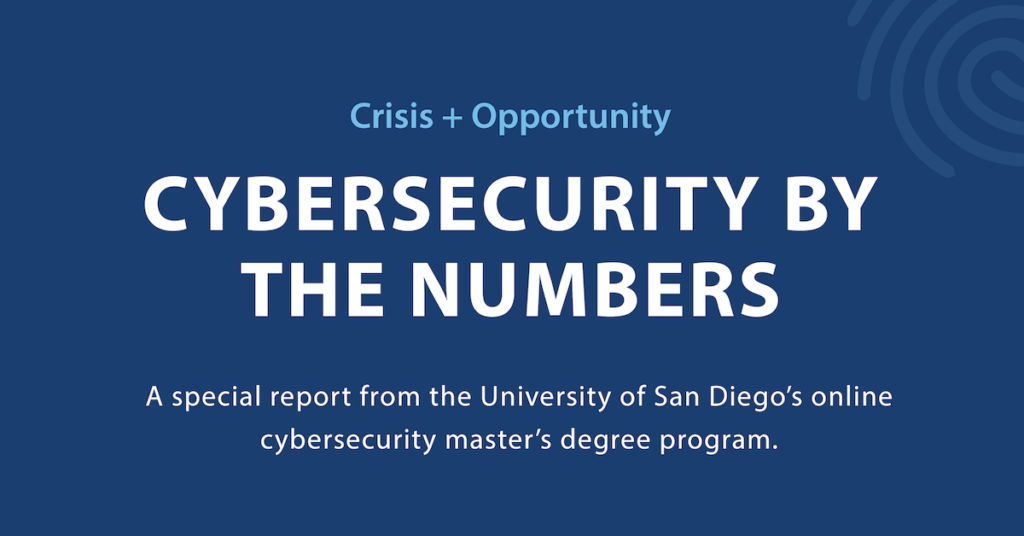Discover Your Niche in One of IT Security’s Most Diverse & Potential-Filled Roles
Among the many fascinating jobs in the dynamic, in-demand field of cybersecurity, the role of cybersecurity consultant is one that holds nearly unlimited potential to position you for the broadest range of opportunities.
What is a Cybersecurity Consultant?
The short answer is that cybersecurity consultants are independent contractors employed by companies across all industries to safeguard systems, networks and valuable data.
The long answer is much more complex, but also illustrates why cybersecurity consultant is an appealing and potentially lucrative career option for IT professionals with the right experience and education.
Thanks to the fact that employers are grappling with an across-the-board cybersecurity talent shortage, cybersecurity consultant salaries are typically high with many opportunities to earn above $100,000. (More on this below.)
Flexibility is a key advantage for both working and aspiring cybersecurity consultants.
Whatever your skillset, there are opportunities that align with your strengths and interests — from small companies that don’t have a dedicated IT security team to Fortune 500 organizations with ongoing needs for cybersecurity help in multiple specialties.
Depending on the company and its unique needs, a cybersecurity consultant might:
- Work as an attacker, a defender or both
- Specialize in systems and networks, software or both
- Offer their skills as a specialist or a jack of all trades
- Develop an engineering focus or an operations and leadership focus
- Find a niche at one company in one role or gain experience in multiple roles with multiple employers
In each of the scenarios cited above, your experience as an independent consultant is fully transferable to a wide range of opportunities in the world of full-time cybersecurity work.
Additionally, cybersecurity consulting can also be a springboard for would-be IT entrepreneurs — for example, someone who gains either specialized or diverse experience in the workplace and then earns a master’s degree to pursue their goal of starting their own cyber consulting firm.
[RELATED] From USD to Salesforce: Meet Paul Cho, Security Engineer >>
Cybersecurity Consultant Job Descriptions, Responsibilities & Skills
Understanding that there is no one job description for a cybersecurity consultant, here is a list of common cybersecurity consultant roles and responsibilities:
- Penetration testing and vulnerability testing
- Bug bounty hunting
- Firewall safety and management
- Implementing backup and fail-safe features
- Monitoring systems for possible breaches and compliance with security protocols
- Advanced persistent threat management
- Establishing internal security and network access control protocols to guard against human error, phishing, social engineering, etc.
- Comprehensive knowledge of encryption techniques and capabilities
- Deep familiarity with operating systems and scripting and programming languages
- Thorough understanding of ethical hacking and coding practices
- General ability to update and upgrade security systems
- Risk analysis and overall security assessments
- Project scoping, including cost estimates and coordinating with third-party providers
- Providing technical guidance and/or supervision to internal security teams
- Defining, implementing and maintaining corporate security policies
- Conducting organizational security audits to determine and address potential vulnerabilities
- Responding immediately to security-related incidents and providing thorough post-event analysis
- Develop reports and communicate findings and recommendations to key company stakeholders
- And many more
One helpful article from TechGenix.com lists the following “Must-Have Cybersecurity Skills That Make You an In-Demand Expert“:
- Intrusion detection
- Malware analysis and reversing
- Programming know-how (languages such as C, C++, PHP, Perl, Java, Shell)
- Thinking like a black hat
- Building a well-rounded skillset
- Risk analysis and mitigation
- Cloud security
- Overall security analysis
For cybersecurity consultants, your range of potential career opportunities will be that much broader if you bring to the table a strong combination of technical hard skills and soft skills in such areas as communication and project leadership.
Sought-after soft skills include:
- Overall communication skills; strong critical thinking and analytical skills
- Strong leadership, project and team-building skills
- Business skills such as the ability to identify risks associated with business processes, operations, technology and IT projects
- Ability to explain complex topics to those without a technical background
Cybersecurity Consultant Salaries
Salary ranges for cybersecurity consultants vary dramatically depending upon the nature of the role, the employer, the geographic location, etc.; but the opportunity to earn a high salary is definitely one of the reasons people enter the field of cybersecurity.
Industry employment resource Cyberseek.org lists average cybersecurity consultant salaries at $91,000 with 15% of employers seeking an advanced degree.
Much of the salary information is subject to change as new data comes in, but as of the publication of this article:
- Indeed.com lists an average salary of $80,500, ranging up to $186,000.
- Payscale lists an average salary $85,500, ranging up to $135,000
- Ziprecruiter lists an average salary $115,000 ranging up to $186,500
Cybersecurity Consultant Career Outlook
The cybersecurity field is well-known for having zero percent unemployment — meaning the number of available jobs exceeds the number of qualified people needed to fill them. This also means there is strong job security and active recruiting for skilled professionals.
The U.S. Bureau of Labor Statistics does not have specific listings for cybersecurity consultant employment data, but it projects ongoing job growth of 32% between now and 2028.
Work Experience
Every cybersecurity consultant role is different, so there are no hard and fast requirements, but conventional wisdom and research suggests that 3–5 years of industry experience is the norm.
Cybersecurity Education Requirements
Unless you’re one of those computer savant whiz kids, you’ll typically need at least a bachelor’s degree, preferably in a technology-related field. There are also a growing number of cybersecurity certifications that can help you develop both general or specific skills.
But, as noted in security-focused website Tripwire, there are considerable advantages to earning your master’s degree in cybersecurity — including higher pay, job security and, notably, expanded career opportunities since an advanced degree can serve as a real competitive differentiator in the job market.
Some advanced programs are more focused on highly practical, hands-on technical skills, while others provide a strong technical background in addition to industry-specific communications and leadership training.
To further explore the details of such programs to determine which best aligns with your aptitudes, interests and career goals, the University of San Diego offers online master’s degree opportunities in Cybersecurity Engineering and Cybersecurity Operations and Leadership.
What Are Some Other Top Cybersecurity Careers?
Cybersecurity is a fast-growing, high-paying field with a range of different types of job openings. Which role might be ideal for you? Take a moment to explore some of the other exciting careers in cybersecurity:
Chief Information Security Officer (CISO)
Want to see the top paying jobs in cybersecurity? Read this article.
Want to see the top entry level jobs in cybersecurity? Read this article.
Want to see the top non-technical jobs in cybersecurity? Read this article.
Want to learn how to land the best jobs in cybersecurity? Read this article.





